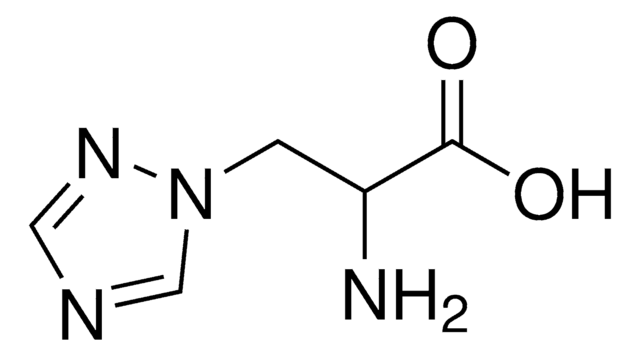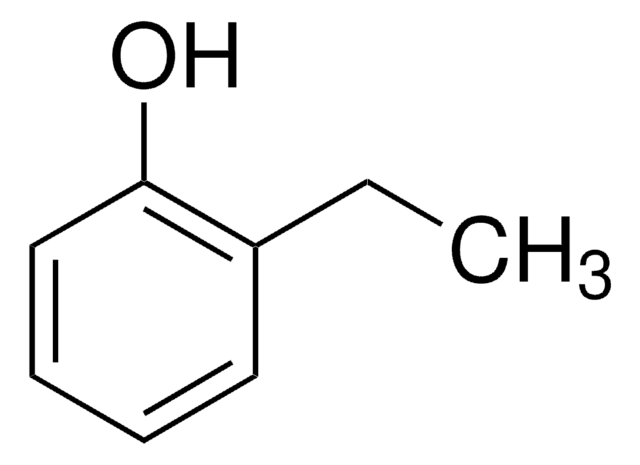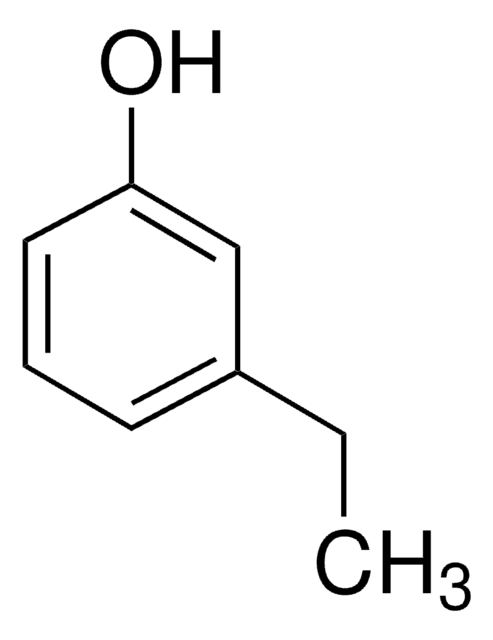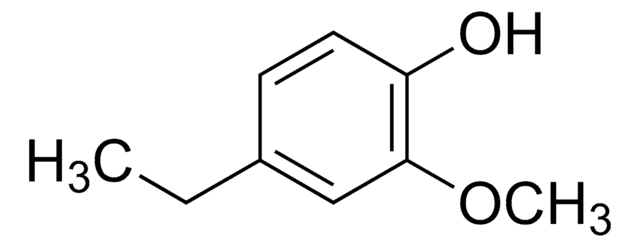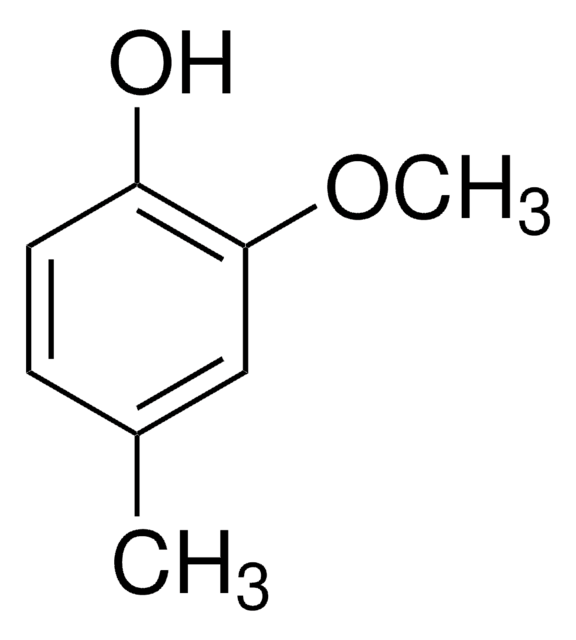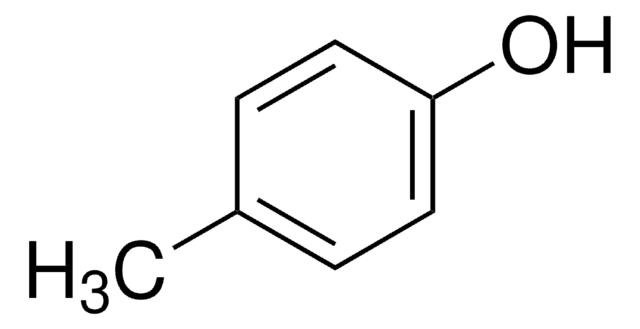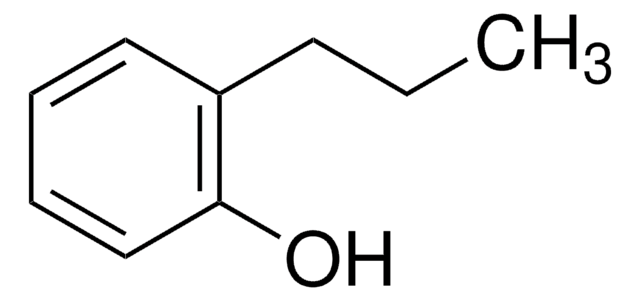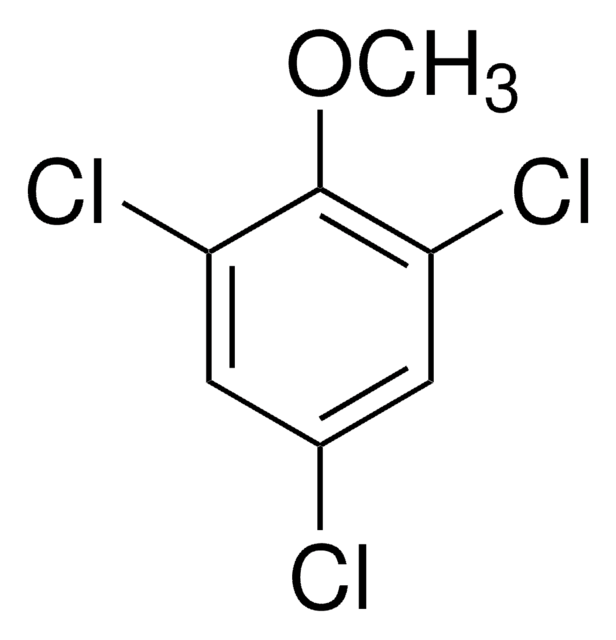E44205
4-Ethylphenol
99%
Synonym(s):
(4-Hydroxyphenyl)ethane, (p-Hydroxyphenyl)ethane, 1-Ethyl-4-hydroxybenzene, 4-Ethylphenol, p-Ethylphenol, p-Hydroxyethylbenzene
About This Item
Recommended Products
vapor density
4.2 (vs air)
Quality Level
vapor pressure
0.13 mmHg ( 20 °C)
Assay
99%
bp
218-219 °C (lit.)
mp
40-42 °C (lit.)
SMILES string
CCc1ccc(O)cc1
InChI
1S/C8H10O/c1-2-7-3-5-8(9)6-4-7/h3-6,9H,2H2,1H3
InChI key
HXDOZKJGKXYMEW-UHFFFAOYSA-N
Looking for similar products? Visit Product Comparison Guide
Signal Word
Danger
Hazard Statements
Precautionary Statements
Hazard Classifications
Eye Dam. 1
Storage Class Code
11 - Combustible Solids
WGK
WGK 1
Flash Point(F)
212.0 °F - closed cup
Flash Point(C)
100 °C - closed cup
Personal Protective Equipment
Choose from one of the most recent versions:
Certificates of Analysis (COA)
Don't see the Right Version?
If you require a particular version, you can look up a specific certificate by the Lot or Batch number.
Already Own This Product?
Find documentation for the products that you have recently purchased in the Document Library.
Customers Also Viewed
Our team of scientists has experience in all areas of research including Life Science, Material Science, Chemical Synthesis, Chromatography, Analytical and many others.
Contact Technical Service
